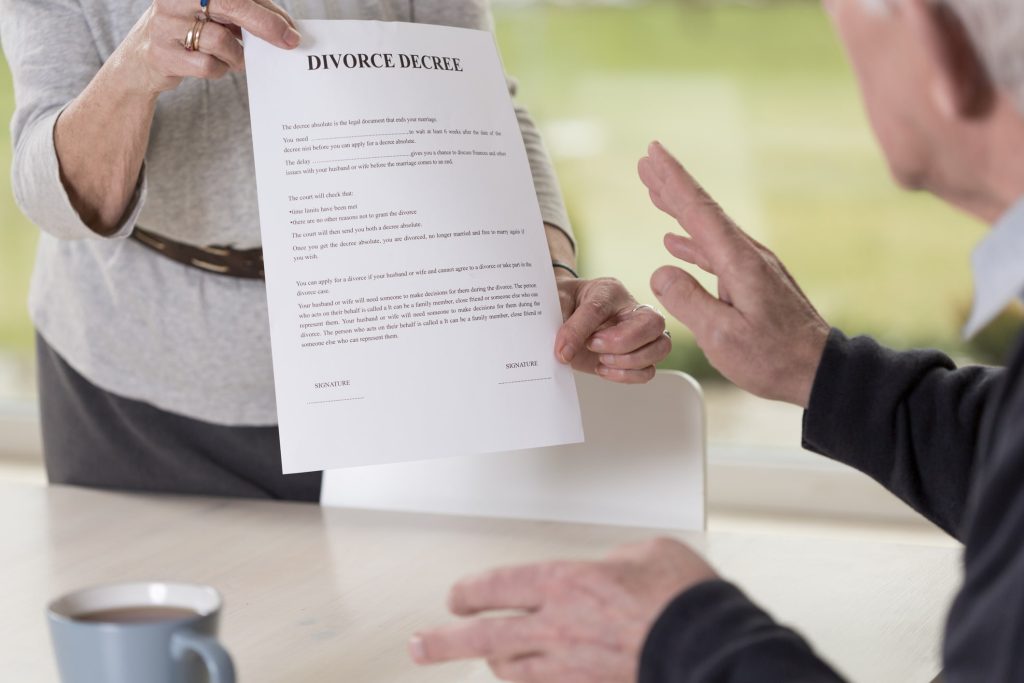MARCH 15, 2010 VOLUME 17, NUMBER 9
Older individuals often get married, of course, and sometimes face legal issues as a result of separation or divorce. The legal problems associated with the end of a late-life marriage are not necessarily different from those faced by younger divorcing couples. A recent Arizona Court of Appeals decision addresses one difference that often occurs.
When Norman and Judy Flower married he was 76 and she was 55. She had a son from a former marriage, and each of them owned a home. Mr. Flower promptly transferred his home into joint ownership with his new wife; Mrs. Flower’s son was already on the title to her home, and she did not add Mr. Flower.
The couple lived together in Mr. Flower’s home for six months, while they fixed up Mrs. Flower’s residence. They took out a line of credit secured by Mr. Flower’s home and spent a total of at least $32,000 on Mrs. Flower’s home. They accumulated a total of $61,000 of debt during the marriage. After the work was done on Mrs. Flower’s home they moved into it, and her son moved into the jointly-owned home that had originally belonged to Mr. Flower.
A year after the marriage, Mr. Flower decided that his wife had been interested in him only for financial reasons and he filed a petition seeking an annulment. Mrs. Flower responded by asking for a divorce, and insisted that she was entitled to a half interest in what had been Mr. Flower’s home, all of her own (now improved) home, and no obligation to repay any of the costs of improvements to her home.
Arizona law, like that of many jurisdictions, assumes that the property division in a divorce proceeding will usually be roughly equal. The legal term, however, requires that it be “equitable,” and in rare cases that can mean something other than an equal division. The trial judge decided this was such a case.
Although the trial court denied Mr. Flower’s request for an annulment, it did grant the couple a divorce. The judge also returned Mr. Flower’s residence to him, although it required him to pay the majority of the debt the couple had accumulated. Mrs. Flower was awarded her home without any claim for the improvements made during the marriage, and she was ordered to pay $16,000 of the couple’s debts. Mrs. Flower appealed.
The Court of Appeals affirmed the unequal division of property and debts. Given the unusual facts of this case, ruled the appellate judges, the usual requirement of “substantially equal” division need not be applied. The appellate court noted that though Mr. Flower received his home, he was also required to pay most of the community’s debt incurred during a relatively brief marriage. Flower v. Flower, February 25, 2010.
Arizona, of course, is a “community property” state. Does that mean that the result in a state that did not apply community property rules would be different? Perhaps, but not necessarily. Most states apply some version of Arizona’s requirement that property division be “equitable” and assume that usually means “equal.” While Mr. and Mrs. Flowers did initially transfer his residence into “community property with right of survivorship,” the result in Arizona would not have been different if they had transferred it to “joint tenancy with right of survivorship.”
Is the result in the Flower case unusual based on unusual facts? Not really. The same day that the Arizona Court of Appeals decided the Flower property division issues, it also handled another, similar case. Retirees Carolyn and Lowell Inboden (the opinion does not give their ages) had married and purchased a vacant lot as joint tenants, but using $90,000 of Mrs. Inboden’s separate money from before the marriage. They then built a home on the lot, using $67,000 of her money, $46,500 of his, and a lot of sweat (they acted as their own general contractors).
When Mr. and Mrs. Inboden divorced a little less than two years after the marriage (and just a few months after the house was completed), the trial judge awarded her about three-quarters of the value of the home to reimburse her for her disproportionate contribution to its purchase and construction. The Court of Appeals reversed that result and returned it for further consideration.
In the case of the Inbodens’ property division, the appellate court was clear that the final result might well be an unequal division. The basis for any deviation, however, must be based on “equitable” principles, and not on a simple calculation to reimburse each spouse for their contribution of property that was previously separate. There is a presumption, difficult to overcome, that changes of title or transfers of assets are intended to be gifts, and those gifts can not be reversed if the marriage later falters. Inboden v. Inboden, February 25, 2010.
Why are these divorce issues “elder law” concerns? They are not, really — except that when older couples marry they are more likely to have property that they bring into the marriage, and less likely to have minor children. Consequently, if their later-in-life marriages fail they are perhaps more likely to present complicated property division issues and less likely to focus on child custody and support problems.
Of course, divorce is not the only venue for property division concerns. Even the popular press has begun to consider the possibility that later-in-life marriages might create property disputes between surviving spouses and children from prior marriages or relationships.



